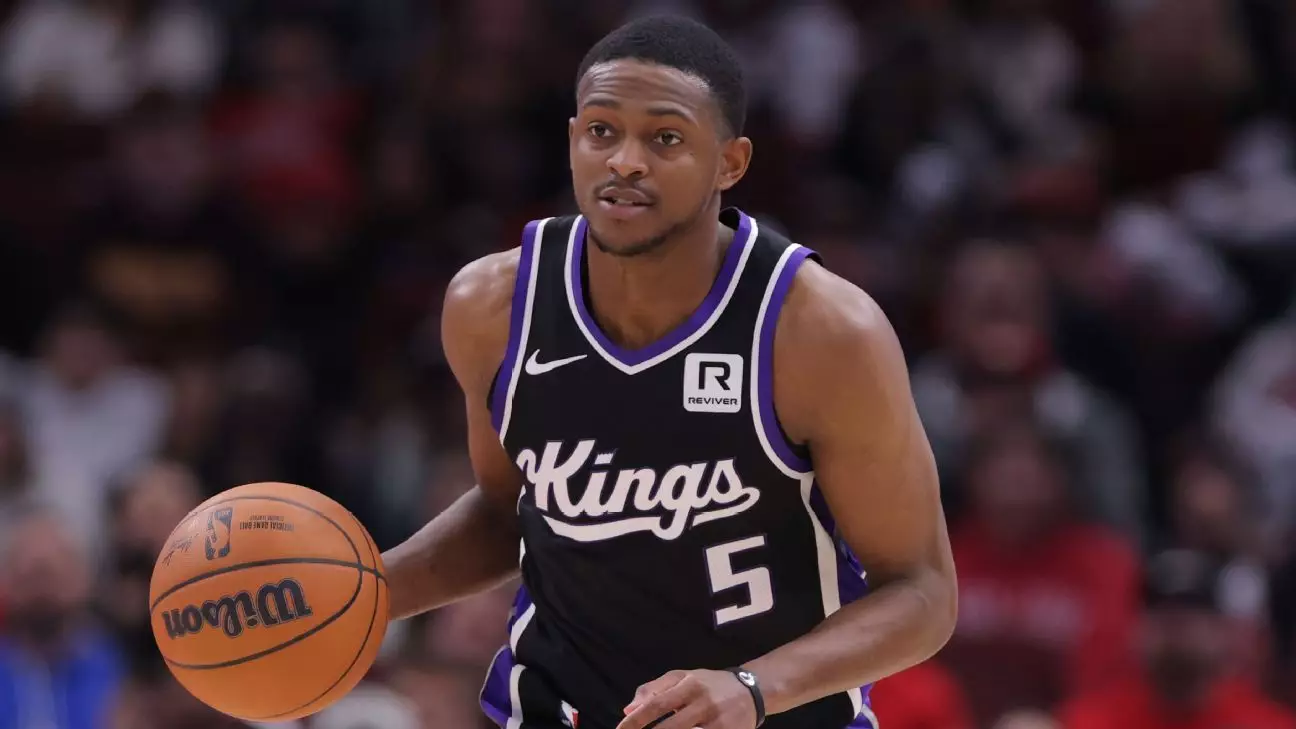In a stunning turn of events, the Sacramento Kings have agreed to a pivotal three-team trade involving De’Aaron Fox, Zach LaVine, and a myriad of draft picks. This announcement has sent shockwaves through the NBA community, highlighting the ever-changing dynamics within the league as teams re-evaluate their rosters and strategies ahead of the trade deadline on February 6. This trade not only reshapes the immediate futures of the teams involved but also signals a broader trend in the NBA—one that prioritizes strategic vision over mere talent accumulation.
The Kings’ decision to trade De’Aaron Fox, their franchise star, marks a significant pivot in their strategy. Fox has spent his entire eight-year career in Sacramento and was pivotal in ending the Kings’ long playoff drought in the previous season. His statistics, including an average of over 25 points per game, speak volumes of his talent. However, Fox’s unwillingness to commit to the Kings long-term forced the franchise to reconsider its direction.
By acquiring Zach LaVine from the Chicago Bulls, the Kings are not just getting an All-Star caliber player but also aiming to rejuvenate their roster. LaVine is in the midst of a career year and brings with him not only scoring proficiency—averaging 24 points per game—but also a significant improvement in his shooting efficiency. This adjustment indicates that the Kings are attempting to blend their roster with versatile talents to create a deeper playoff-contending squad.
Furthermore, the influx of three first-round and second-round picks illustrates the Kings’ decision to invest in their future. They are replenishing their assets, which might assist in further development or future trades. In the unpredictable landscape of the NBA, such flexibility can prove invaluable, particularly for a team that has struggled to reach the playoffs consistently.
For the San Antonio Spurs, this trade represents an aggressive step towards building a competitive team around emerging star Victor Wembanyama. Pairing the talented rookie with an established star like Fox could create a formidable combination that balances youth and experience. After a promising, albeit imperfect start to the current season, the Spurs have demonstrated a willingness to take risks, and acquiring Fox reflects a strategic confidence in their rebuild.
Fox’s ability to facilitate the game—averaging over 6 assists per game—can complement Wembanyama’s unique skill set, potentially enhancing his development. The Spurs, known for their player development history, might very well prove to be the perfect environment for Fox to flourish.
Moreover, acquiring Sacramento guard Jordan McLaughlin adds depth to the Spurs’ rotation. While the team focuses on nurturing its young talent, having established players can guide and mentor newer additions. Thus, the Spurs are not only acting to win immediately but are also setting the groundwork for sustained success in the years to come.
Chicago’s involvement in this trade highlights their ongoing transition into a rebuild. The Bulls have been seeking to offload LaVine, who is set to make substantial financial commitments in the upcoming seasons. By acquiring multiple picks and young players like Zach Collins and Tre Jones, Chicago is positioning itself to reconstruct its roster.
The fact that the Bulls retrieved control of their own first-round pick signifies their desire to reclaim agency in a draft that could be pivotal for their future. Additionally, this trade reflects a broader assessment of their current roster and a recognition that significant changes were needed after their subpar performance as a playoff contender.
Furthermore, the strategic maneuvering of the Bulls to maintain their protected first-round pick demonstrates sagacity in their long-term vision. The focus on younger talent aligns with NBA trends favoring development and performance over quick fixes.
The recent trade involving De’Aaron Fox, Zach LaVine, and multiple picks encapsulates the evolving strategies of NBA franchises as they strive for success. Each team involved in this trade is making choices that reflect not only their current statuses but also their long-term aspirations. As the trade deadline approaches, the implications of this deal could reverberate throughout the league, prompting further adjustments and realignments as teams search for that elusive championship success. The NBA continues to demonstrate that roster dynamics and strategic foresight are crucial in this perpetually competitive landscape.



Leave a Reply